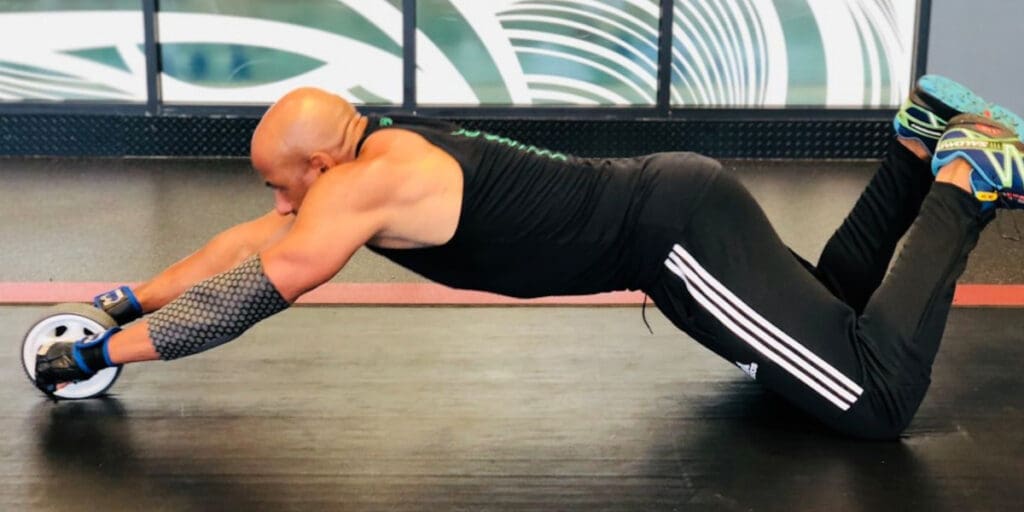Wondering if strengthening your core muscles can truly make a difference in your overall well-being and physical performance? The core serves as the foundation for your body’s movements and stability, affecting numerous aspects of your daily life. By enhancing your core strength, you are not only supporting your posture and spinal health but also improving your body’s functionality in various activities. Curious to unlock the secrets of a stronger core and discover how it can positively impact your life?
Key Takeaways
- Strengthen core muscles through targeted exercises for improved posture and spine stability.
- Weak core muscles can lead to back pain, poor balance, and movement difficulties.
- Frequency of core exercises varies; adjust based on progress and fitness goals.
- Engage in core exercises to reduce back pain, enhance balance, and improve overall health.
Importance of Core Muscles
Strengthening your core muscles is essential for maintaining proper posture, protecting your spine, and enhancing overall stability and balance. Core muscle benefits include providing natural corset support for posture, stabilizing the spine, and protecting internal organs. Weak core muscles can lead to chronic low back pain, poor balance, and difficulty in movement. To address this, engage in core muscle exercises like crunches, leg raises, planks, squats, and deadlifts to reduce strain on the spine and improve functional fitness. Specific exercises such as the 90 Static Hold, Dead bugs, and Barbell Oblique Crunches target different areas of the core, ensuring a well-rounded strengthening routine. Prioritize these exercises in your fitness regimen to build a strong foundation for better posture and spine health.

Core Exercise Recommendations
To optimize your core muscle development and overall fitness progress, it’s essential to incorporate targeted core exercises into your workout routine. When it comes to strengthening your core effectively, consider the following recommendations for a well-rounded approach:
- Effective Techniques:
- Utilize exercises like crunches, leg raises, planks, squats, and deadlifts.
- Progressive Training:
- Increase the intensity and difficulty of your core exercises gradually.
- Focus on Core Engagement:
- Ensure proper core engagement during compound movements and stability during weighted exercises.
- Personalization is Key:
- Tailor your core workout routine to align with your fitness goals and requirements.
- Consistency is Crucial:
- Aim for 2-3 core-strengthening sessions per week for optimal results.
Role of Abdominal Trunk Muscles
Weak abdominal trunk muscles can contribute to chronic low back pain and increase the risk of falls, impacting overall health and mobility. Injury prevention and mobility enhancement are key benefits of strengthening these muscles. By engaging in targeted core exercises, such as planks, crunches, and leg raises, you can reduce the likelihood of back issues and enhance your stability. Maintaining a strong core is crucial for preventing injuries during weighted exercises and improving your overall functional fitness. Incorporating exercises that target different abdominal muscles into your routine will not only help you achieve a stronger core but also support your overall well-being. Prioritize your core strength to safeguard against potential injuries and improve your mobility for a better quality of life.
Fitness Trends and Recommendations
Explore the latest fitness trends to stay informed and inspired on your wellness journey.
- Utilize smartwatch benefits for tracking activity levels and monitoring progress.
- Engage in outdoor activities like hiking, cycling, or swimming for a refreshing fitness experience.
- Stay updated on workout routines and health tips to enhance your fitness knowledge.
- Take advantage of discounts on fitness trackers and smartwatches from leading brands like Fitbit and Garmin.
- Incorporate outdoor activities, such as running or yoga in the park, to promote holistic well-being and a healthy lifestyle.

Conclusion
Now that you understand the importance of core muscles, take action to strengthen them for a better you. Incorporate core exercises into your routine, such as crunches, planks, and squats, to improve your posture, protect your spine, and enhance your overall well-being. By prioritizing core strength, you can stand taller, move with ease, and feel stronger in your daily activities. Don’t wait any longer – start building a stronger, more resilient core today for a better quality of life.

Q: What Are Some Common Mistakes People Make When Performing Core-Strengthening Exercises?
When performing core-strengthening exercises, common mistakes include improper form and rushed movements. Ensure proper alignment to avoid straining your back and maximize muscle engagement. Focus on controlled motions and conscious muscle activation. Avoid relying on momentum or gravity to do the work for you. Maintain a neutral spine position and engage your core throughout the exercises. Prioritize quality over quantity for effective core strengthening and injury prevention.
Q: How Can One Assess if Their Core Muscles Are Weak and in Need of Strengthening?
To assess weak core muscles, try exercises like planks or leg raises. Look for signs like lower back pain or poor balance. Strengthen core muscles with crunches, squats, and deadlifts. Benefits include better posture, spine support, and reduced back pain. Engage in core exercises 2-3 times weekly for optimal results. Adjust based on progress and goals. Prioritize core strength for overall fitness and well-being.
Q: Are There Specific Dietary Recommendations or Supplements That Can Support Core Muscle Development?
To support core muscle development, consider incorporating specific dietary supplements and nutrition tips into your routine. Protein-rich foods aid in muscle repair and growth, while omega-3 fatty acids reduce inflammation, benefiting muscle health. Vitamin D promotes muscle function, and magnesium aids in muscle relaxation. Hydration is key for muscle performance. Consult a healthcare provider or nutritionist for personalized recommendations tailored to your fitness goals.
Q: Can Core Exercises Help Improve Posture and Alleviate Discomfort Associated With Sitting for Long Periods?
Improving posture and reducing back pain through core exercises is key. Strengthening your core can alleviate discomfort from prolonged sitting by enhancing stability and support for your spine. Engage in exercises like planks, crunches, and deadlifts to target these areas effectively. Consistent practice, 2-3 times weekly, can lead to better posture, decreased back pain, and increased comfort during long periods of sitting. Stay committed for optimal results.
Q: Are There Any Alternative Methods or Therapies, Besides Traditional Exercises, That Can Help Strengthen Core Muscles Effectively?
To effectively strengthen your core muscles, consider incorporating alternative methods like specific yoga poses and Pilates exercises. Physical therapy and chiropractic care can also be beneficial in targeting and enhancing core stability. These approaches offer diverse ways to engage and challenge your core muscles beyond traditional exercises, promoting overall strength and balance. Experiment with these options to advance your core strength and master your fitness goals.







































